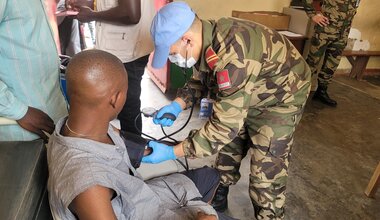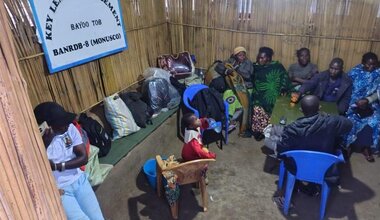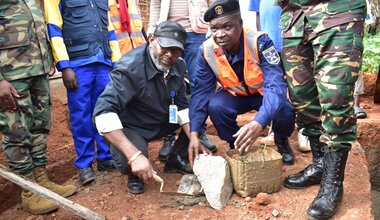Presentation of Report and Study on the Situation of Human Rights in the Democratic Republic of the
FLAVIA PANSIERI, Deputy High Commissioner for Human Rights, introducing a report and a study on the Democratic Republic of the Congo, said that the Democratic Republic of the Congo remained torn by conflicts on many levels, which were intertwined, complex, and spurred by the country’s richness in natural resources. The Democratic Republic of the Congo had experienced some of the bloodiest conflicts since the Second World War, spanning over several decades of violence.
Only in June, July and August 2015, the United Nations Joint Human Rights Office had documented over 1,000 human rights violations throughout the Democratic Republic of the Congo, causing nearly 2,500 victims, mostly in the eastern provinces of North Kivu, South Kivu and Orientale. In the conflict-stricken provinces in the east, violations of human rights and international humanitarian law committed by parties to the conflict against civilians, including for their real or perceived collaboration with security forces or armed groups, remained all too frequent. There had been a sharp increase in the number of violations committed by the Forces démocratiques de libération du Rwanda (FDLR) combatants in comparison to the previous six months. On a more positive note, in August, a new law on modalities of application of women rights and of parity had been promulgated, constituting an important step towards ensuring equality in multiple arenas.
With elections coming up, the Office of the High Commissioner for Human Rights was deeply concerned about increased reports of restrictions of political rights and fundamental freedoms that could impact the credibility and the legitimacy of the elections. The National Assembly’s adoption in June of the bill on public demonstrations was welcome in that regard. Slow progress had been registered in the judicial proceedings against several human rights defenders and political activists, at least five of whom remained in preventive detention. Those cases were a test of the independence of the judiciary, and the judicial authorities were called upon to uphold due process in all the proceedings. Detention conditions continued to be a huge concern in the country. Ms. Pansieri said that the trial of former FARDC General Bosco Ntaganda had opened before the International Criminal Court, demonstrating that perpetrators of serious crimes would not go unpunished. The High Military Court had rendered its decision in the proceedings of the presumed murderers of the renowned human rights defender Floribert Chebeya and his driver, convicting one suspect to 15 years in prison. Steps taken to operationalize the National Human Rights Commission were welcomed.
The study on the impact of technical assistance between 2008 and 2014 in the area of human rights invited Member States and other actors to better coordinate and strengthen their technical assistance to the Democratic Republic of the Congo, in order to increase the capacity of both rights-holders and duty-bearers in the country. Such assistance could have real impact: in 2008, security and defence forces had been involved in 86 per cent of human rights violations, while that percentage in 2014 stood at 53 per cent. It was an example of a difference that could be made in people’s lives.
See more at: http://www.ohchr.org/en/NewsEvents/Pages/DisplayNews.aspx?NewsID=16527&LangID=E
Download the file:
 UN
UN United Nations Peacekeeping
United Nations Peacekeeping






